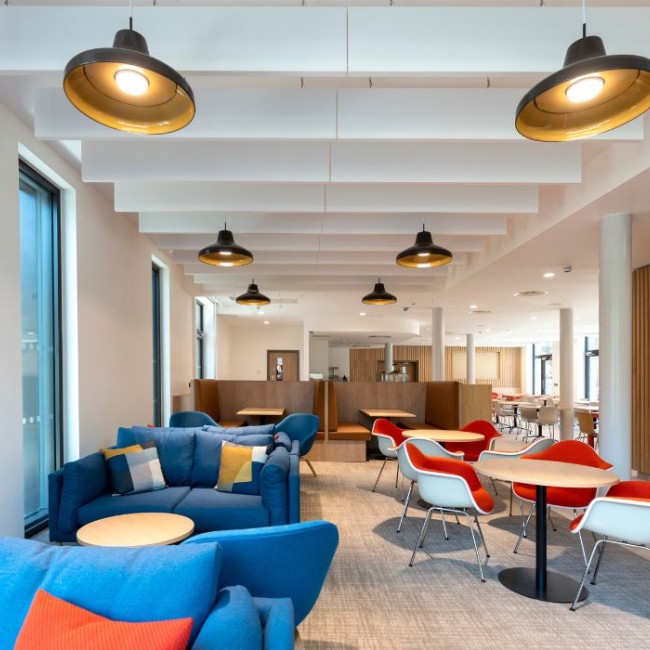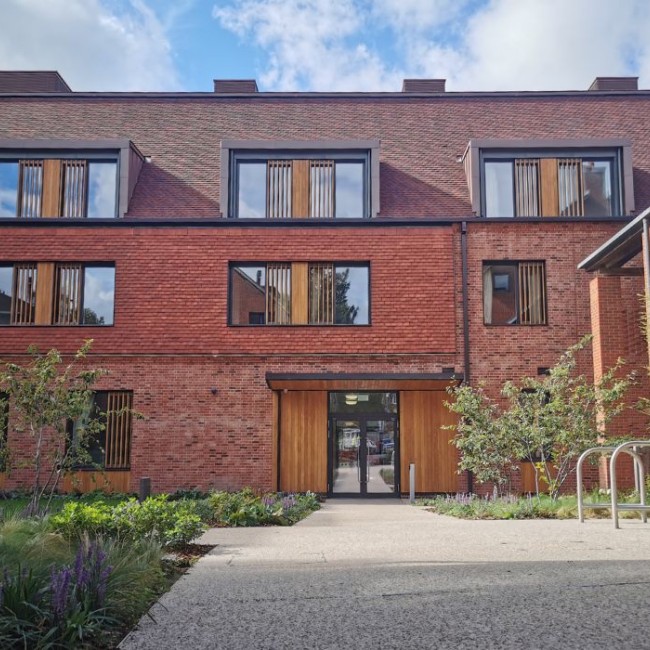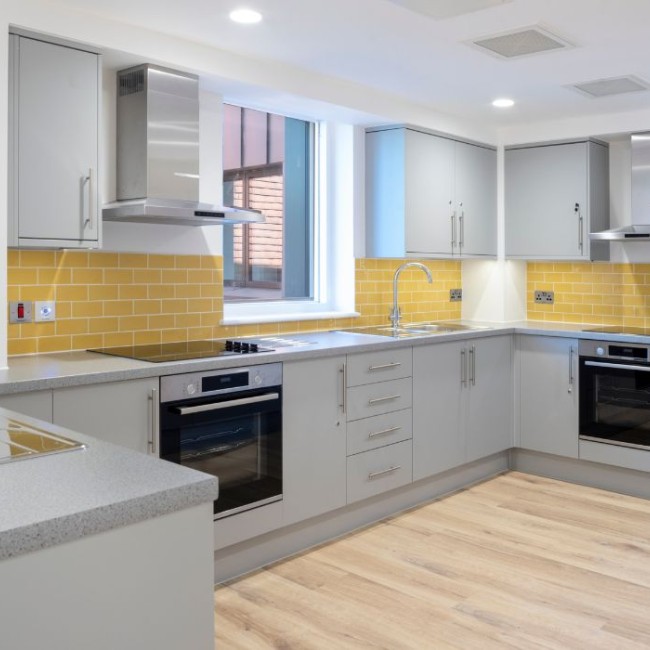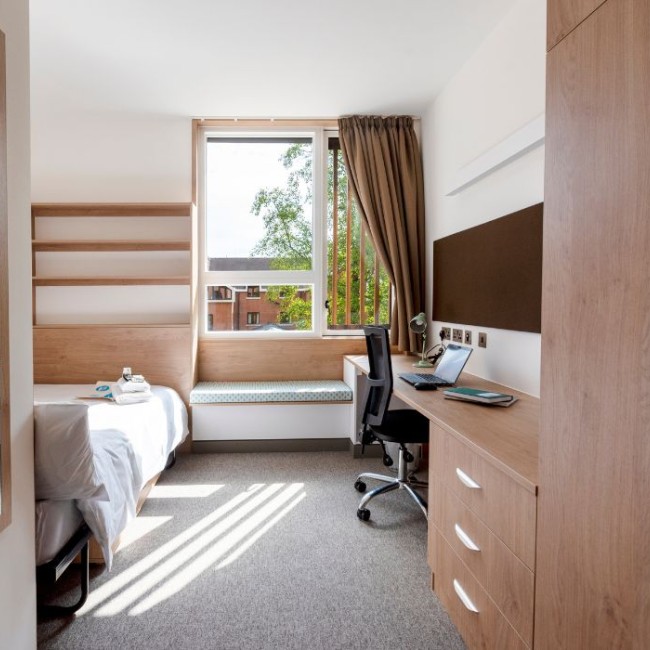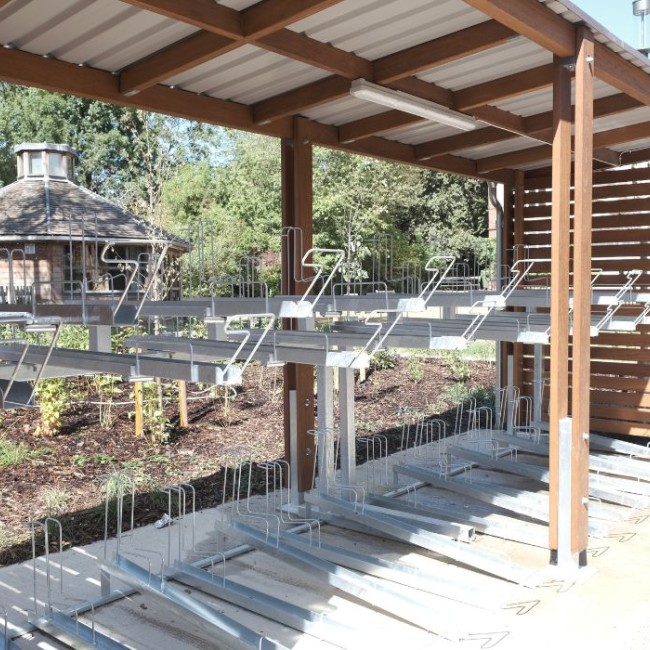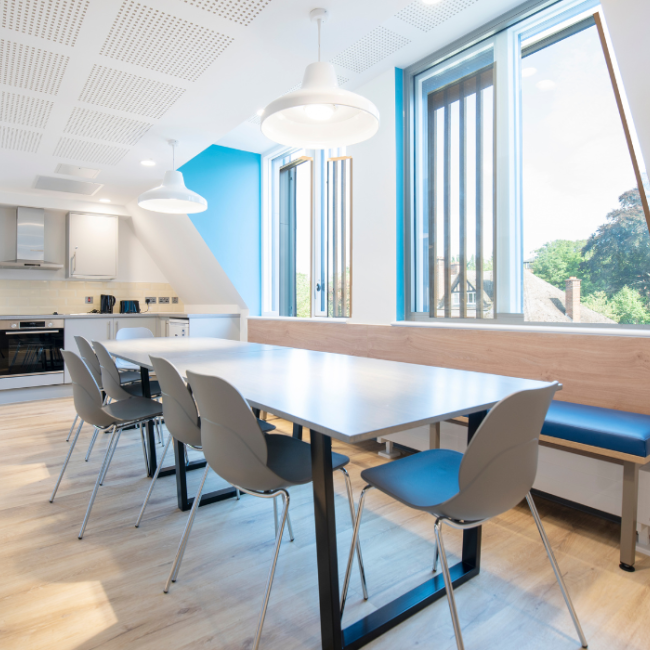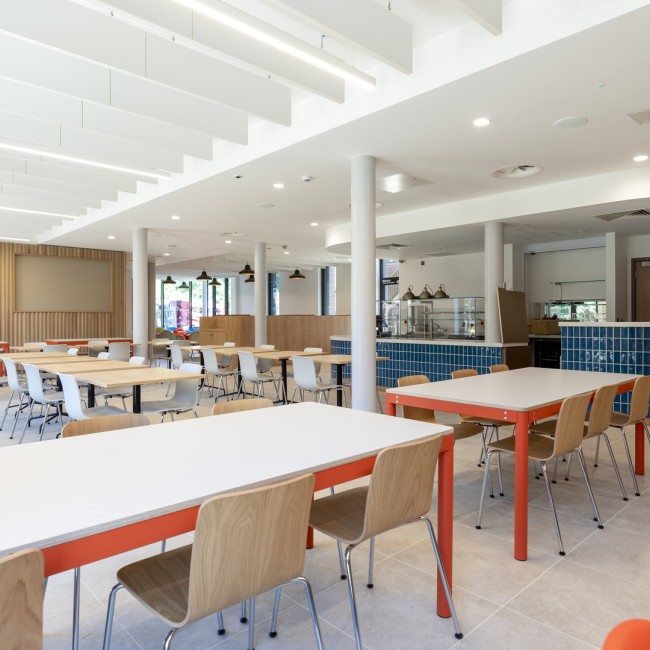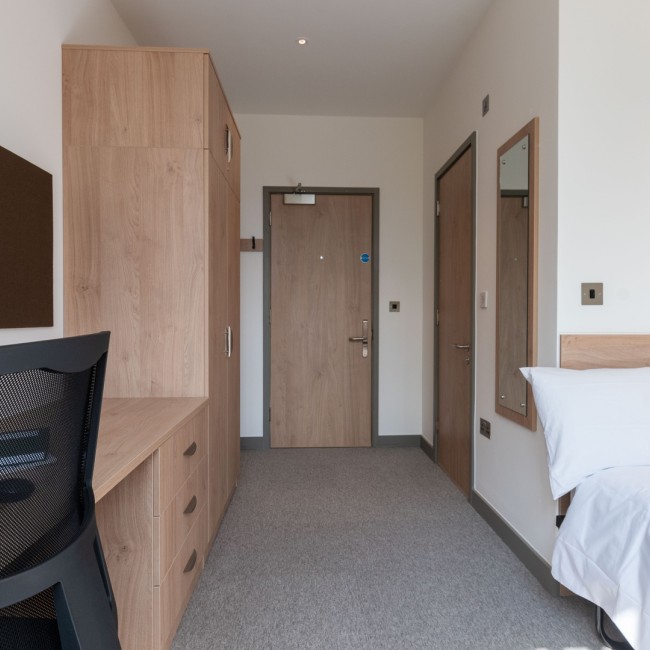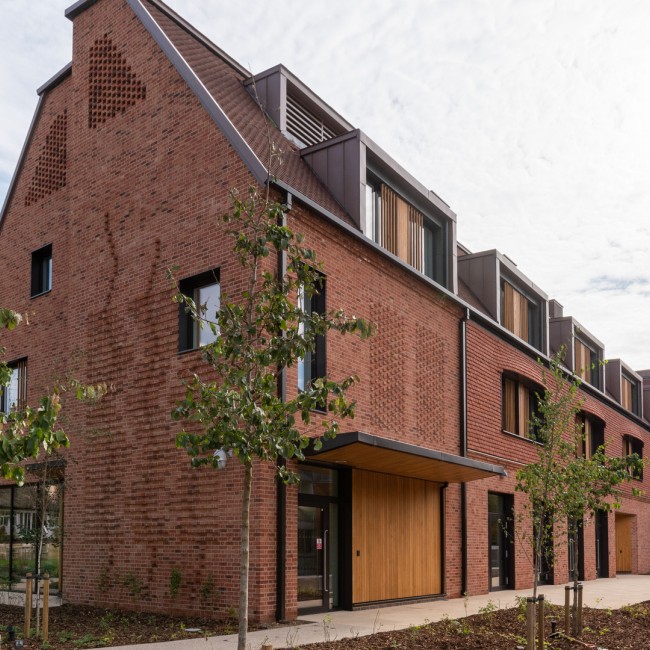Lucy's eco-friendly, accessible and future-proof building houses the growing and diverse student community
Our new eco-friendly and accessible building provides 72 modern, en-suite study-bedrooms clustered in different combinations with a variety of environments for social interaction (including a large café-bar). There are new pathways, landscaping and bicycle storage, together with new bicycle and pedestrian access onto Madingley Road.
The building has been designed to facilitate integration across our increasingly diverse student body and foster an engaged, inclusive and welcoming community. It is the ideal environment for students to make personal friends and professional networks outside their subject area that will last for years to come. The surrounding grounds have been re-landscaped to create outdoor spaces at different scales including those suitable for events and performances, a sensory garden, and an intimate new courtyard for quiet relaxation or individual study. Wellbeing has been an important design principle – all study bedrooms, for example, have views of the gardens - and students have been involved in design workshops using head-up displays to simulate the size, layout, and facilities of the study-bedrooms and informal social areas.
The building was officially handed over to the College by SDC on the 8th of August, 2022, after just 80 weeks of work.
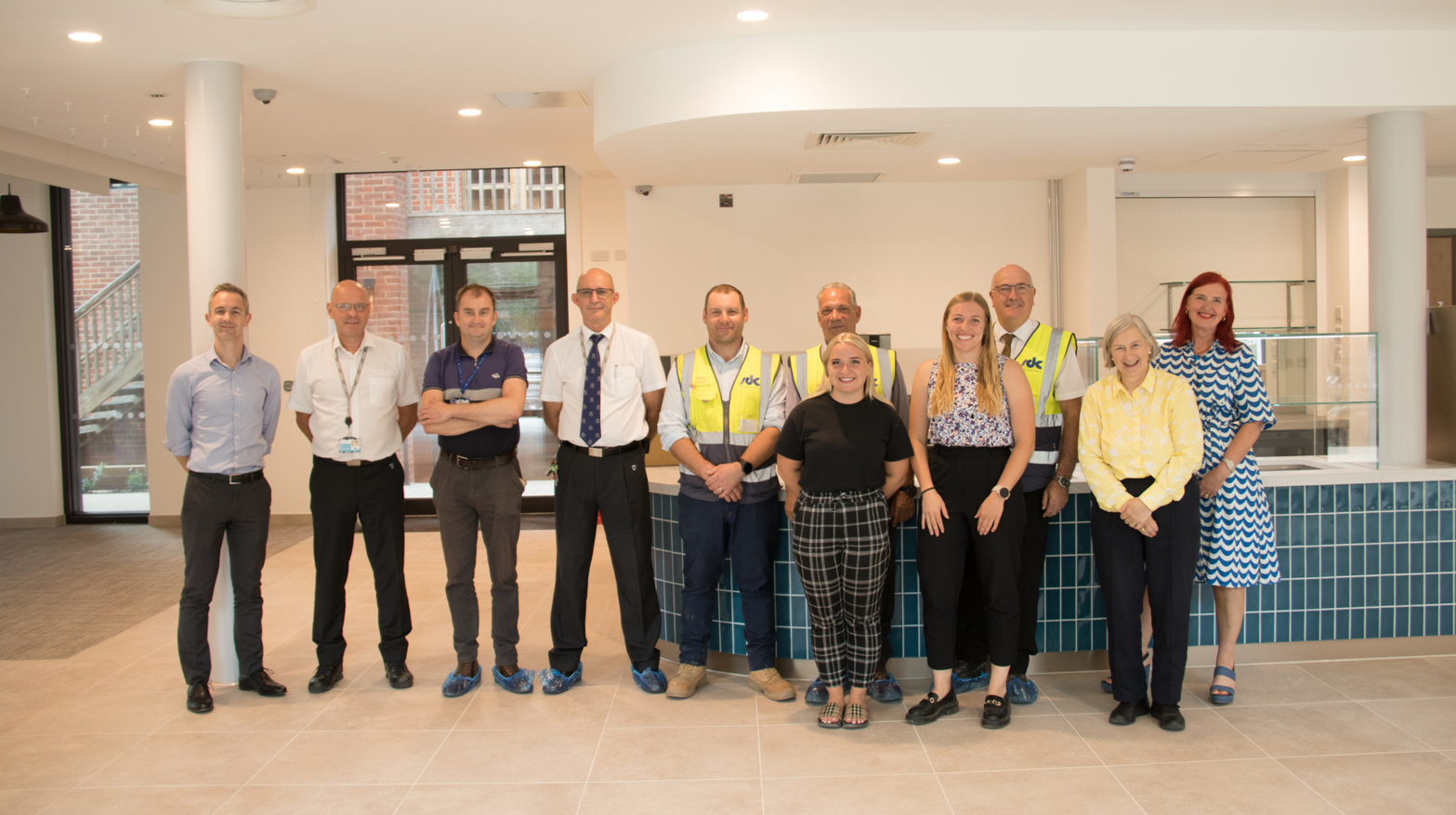
This is a very exciting development for the College which significantly increases the number of students who can be accommodated on the main site and transforms the facilities offered to all our students. The building has been designed and delivered as a Passivhaus scheme, which means low energy in use and high comfort. The design energy targets are in line with those used in industry carbon-zero frameworks from the RIBA (Royal Institution of British Architects), LETI (London Energy Transformation Initiative), and the UKGBC (UK Green Building Council). The design eliminates the use of fossil fuels by utilising Air Source Heat Pump technology to provide space heating and hot water. 100% of the electricity is supplied by renewables.
Some interesting facts
A mixed-use accommodation, this is the first Passivhaus project in Cambridge which combines residential accommodation with other uses, namely the ground floor study social space (café/bar).
Tile hanging on the façades help reduce carbon by reducing the volume of material used, as well as relating to the context of the West Cambridge conservation area and providing visual interest. These areas of façade are tied back to the main structure using glass reinforced polymer (GRP) brackets – an innovative approach to reduce the heat loss usually associated with steel ties.
Air Source Heat Pumps (ASHPs) provide both heating and hot water at Lucy Cavendish College; a first for Cambridge college accommodation. Other Passivhaus projects have used a mix of either ground source heat pumps or ASHPs with electric heating.
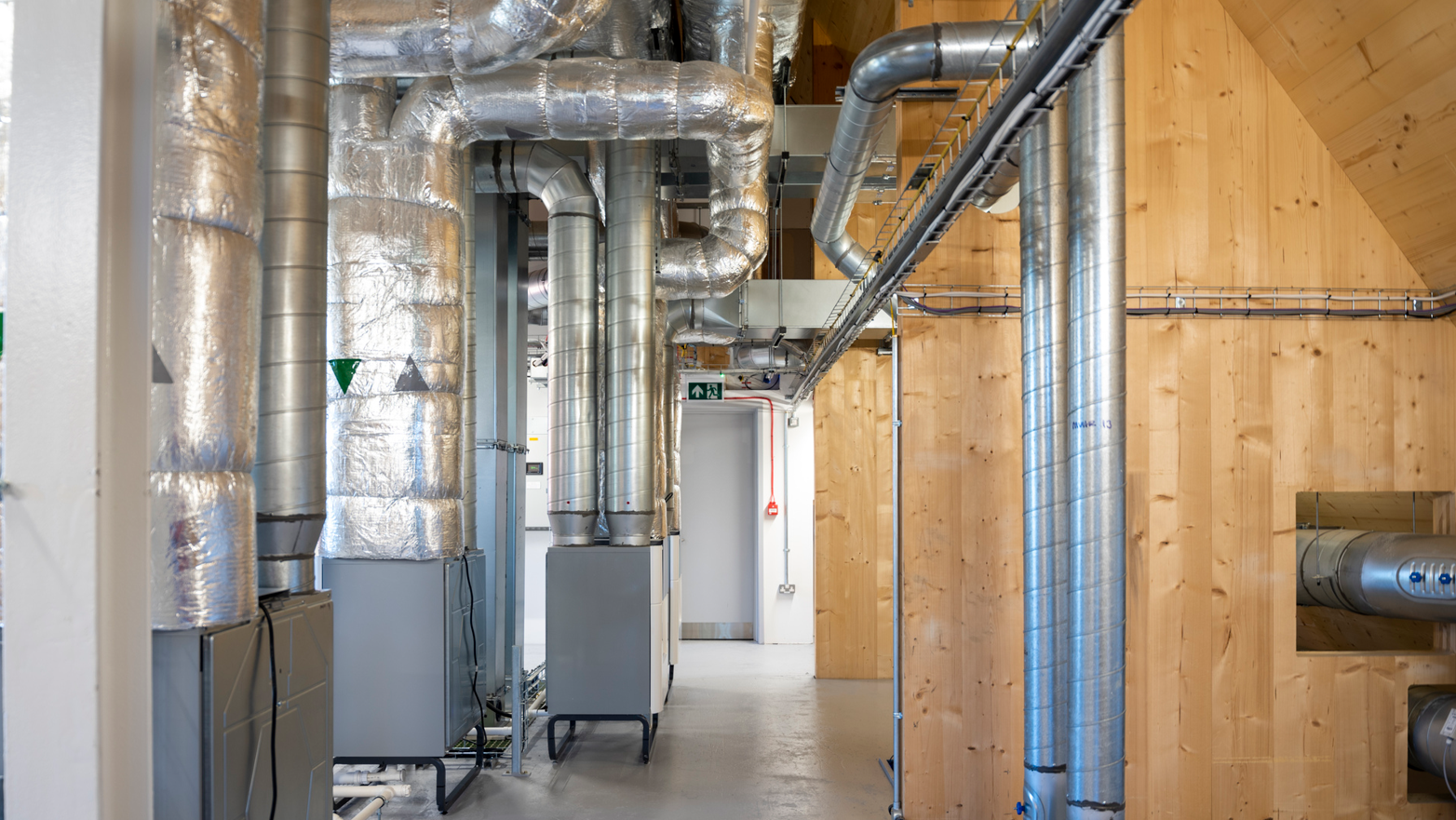
The foundation details developed for Lucy Cavendish College, minimising the connection from the foundation to the ground floor to reduce heat loss through the ground, are now being implemented on other projects in Cambridge. Other Passivhaus schemes in Cambridge have relied on raft foundations, but the ground conditions at Lucy Cavendish precluded this option. The amount of spoil generated from piling was also significantly reduced thanks to input from SDC – minimising the number of vehicle journeys and material removed from site.
The New Building goes considerably above and beyond minimum requirements to support inclusivity. With assistive technologies provided throughout the building; colour choices and layouts providing varied environments for people with different neurodivergent needs; and the ability for wheelchair users to visit every habitable room; the project is one of the most accessible in Cambridge. It has four accessible rooms, two with adjacent carers facilities, equipped with visual and sensory alarms.
Time-lapse video of construction
Related articles
Work to start on Lucy’s new Passivhaus development
The Wolfson Foundation awards Lucy Cavendish College up to £200,000 towards the cost of new accommodation and learning spaces
